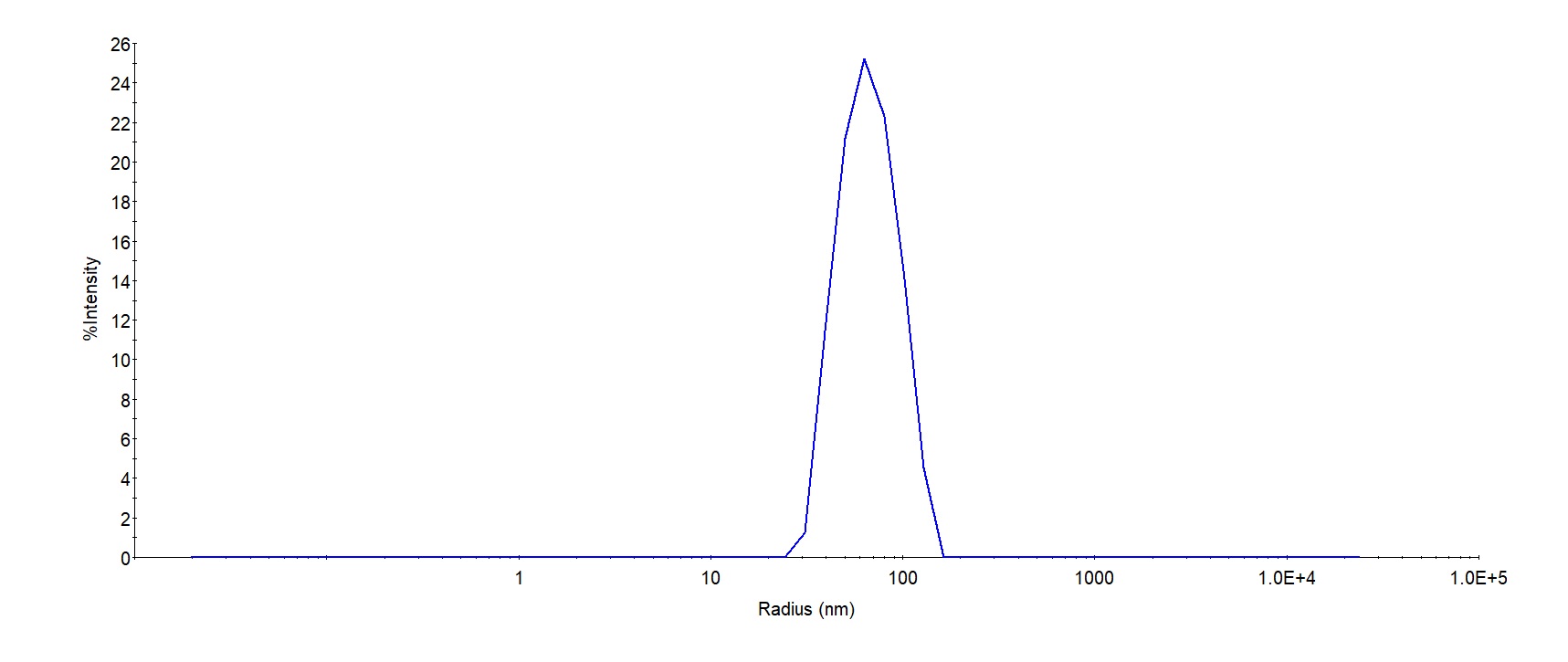分子别名(Synonym)
EBS7, GP27, MER2, PETA-3, RAPH, SFA1, TSPAN24
表达区间及表达系统(Source)
Human CD151 Full Length Protein (VLP) (CD1-H52P9) is expressed from human 293 cells (HEK293). It contains AA Gly 2 - Tyr 253 (Accession # P48509).
Predicted N-terminus: Met
蛋白结构(Molecular Characterization)
Virus-like particles(VLPs) are formed by self-assembly of envelop/capsid proteins from viruses. Membrane Proteins can be constituted in-situ with VLPs produced from HEK293 cell cultures. These VLPs concentrate conformationally intact membrane proteins directly on the cell surface and produce soluble, high-concentration proteins perfect for immunization and antibody screening.

The VLPs provide the display of properly folded membrane proteins in their native cellular membrane in a compact size of 100~300 nm diameter (similar to the size of most viruses) making it optimal targets for dendritic cells in vivo and surface attachment for phage display.
内毒素(Endotoxin)
Less than 1.0 EU per μg by the LAL method.
制剂(Formulation)
The VLPs are highly immunogenic, so the immunization strategy should be optimized (antigen dose, regimen and adjuvant).
Supplied as 0.2 μm filtered solution in PBS, Arginine, pH7.4 with trehalose as protectant.
Contact us for customized product form or formulation.
运输(Shipping)
This product is supplied and shipped with dry ice, please inquire the shipping cost.
存储(Storage)
Please avoid repeated freeze-thaw cycles.
This product is stable after storage at:
- The product MUST be stored at -70°C or lower upon receipt;
- -70°C for 12 months under sterile conditions.
质量管理控制体系(QMS)
活性(Bioactivity)-ELISA

Immobilized Human CD151 Full Length Protein (VLP) (Cat. No. CD1-H52P9) at 1 μg/mL (100 μL/well) can bind Monoclonal Anti-Human CD151 antibody, Mouse IgG1 with a linear range of 0.2-3 ng/mL (QC tested).
Protocol
均一性(Identity)-DLS

The mean peak Radius of VLP is 65-85 nm with more than 95% intensity as determined by dynamic light scattering (DLS).
 +添加评论
+添加评论背景(Background)
The protein encoded by this gene is a member of the transmembrane 4 superfamily, also known as the tetraspanin family. Most of these members are cell-surface proteins that are characterized by the presence of four hydrophobic domains. The proteins mediate signal transduction events that play a role in the regulation of cell development, activation, growth and motility. This encoded protein is a cell surface glycoprotein that is known to complex with integrins and other transmembrane 4 superfamily proteins. It is involved in cellular processes including cell adhesion and may regulate integrin trafficking and/or function. This protein enhances cell motility, invasion and metastasis of cancer cells. Multiple alternatively spliced transcript variants that encode the same protein have been described for this gene. [provided by RefSeq, Jul 2008]























































 膜杰作
膜杰作 Star Staining
Star Staining











 Loading ...
Loading ...




